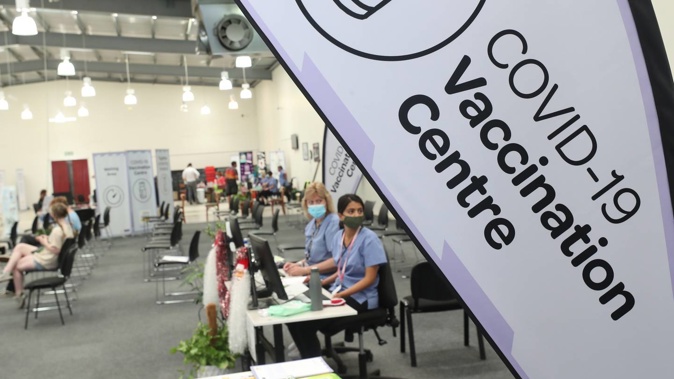
More than a million eligible Kiwis still haven't received their booster jab – something experts worry could make the population yet more vulnerable when the next Omicron wave kicks off.
While welcoming the Government's long-awaited decision to offer a second booster to at-risk people, health experts told the Herald they were concerned more than a quarter of over-12s are yet to get their first one.
As of today, just over 72 per cent of the eligible population have been boosted – with just 1,224 shots given on Saturday – despite more than four million people, or around 95 per cent, having received two doses of the Pfizer vaccine.
A slightly higher segment (96.3 per cent) have been vaccinated at least once – and fewer than 200,000 hadn't received a single dose.
Regions with the highest numbers of unboosted people include Auckland, Counties-Manukau, Waitemata, Canterbury and Waikato.
That perhaps half the population has caught the virus showed Omicron could often evade vaccine immunity – one major study estimated booster protection against symptomatic infection to be just around 50 per cent – and this also dwindled over months.
But studies have also demonstrated that boosting remained highly effective at keeping people from being hospitalised or dying with the virus.
While natural exposure to Omicron also conferred some immunity – perhaps only the equivalent as one vaccine dose, the co-author of one US study said this month – that came with many risks, including "long Covid" symptoms that plight at least 10 per cent of the infected.
University of Auckland vaccinologist Associate Professor Helen Petousis-Harris suspected many Kiwis didn't realise boosting could make a big difference against Omicron, compared with two doses alone.
Given this, she said having two courses shouldn't have been termed double dosed, rather than "fully vaccinated".
"So, there may be a perception out there that the goalposts keep shifting, and many people might just be thinking, 'why should I?' about boosting, and that they think they've already done their best."
In other cases, people might not have gotten around to getting boosted, or felt they didn't have to once they'd had the virus.
"We are really concerned about the lower rate of boosters – but particularly the lower rate of boosters for older people, and those with medical conditions," said Professor Nikki Turner, director of the University of Auckland's Immunisation Advisory Centre.
There were many people – particularly younger Kiwis – who'd received their primary course later, or been infected, which delayed them getting boosted.

"We are really concerned about the lower rate of boosters - but particularly the lower rate of boosters for older people," Professor Nikki Turner says. Photo / Mark Mitchell
"Those are the ones that we need to make sure we've chased up three months later," Turner said.
"But still, there are quite a few people who feel like two doses aren't enough, and don't realise the importance of a booster."
Otago University epidemiologist Professor Michael Baker said that, in contrast with New Zealand's sky-high rates for the first two doses, our booster coverage was "disappointing".
Vaccination remained one of the main ways the country could curb Covid-19 – and Baker suspected a move away from vaccine mandates might have led to poorer coverage.
Astrid Koornneef, director of the Ministry of Health's National Immunisation Programme, acknowledged there was a "growing percentage" of people who appeared less motivated to get a booster.
The ministry's own research also flagged some other barriers such as concerns about long-term side effects, despite a wealth of evidence supporting the vaccine's safety.
Koornneef said the ministry was continuing to promote the booster across media channels and through targeted methods like text message reminders.
With reinfection likely to become more common, and New Zealand heading into the winter months, she said getting boosted could also ease pressure on hospitals and the health system.
"It is important for anyone who is due for their booster to take up that opportunity, as boosters are likely to offer greater protection against infection and transmitting Covid-19 to others and reduce the chance of more serious infections."
On Sunday, the ministry reported another 4841 new community cases, along with nine virus-related deaths and 383 hospitalisations: a third of them in Auckland.
Of those reported deaths – which took New Zealand's toll since the start of the pandemic to nearly 1150 – three were from Auckland and two were from Canterbury, while the others were from Waikato, Wairarapa, South Canterbury and Northland.
Meanwhile, experts were relieved to see the Government finally commit to offering a second booster, which would be available from mid-June for people at high risk of getting very sick with the virus.
The final decision on who is eligible will be made in the coming fortnight, but it will include the older population, residents of aged care facilities and disability care facilities, and severely immunocompromised people.
Turner said studies had indicated a more marked drop-off in protection among immunocompromised people.
"A second dose adds a further level of protection for people 60 years and older."
- by Jamie Morton, NZ Herald
Take your Radio, Podcasts and Music with you







